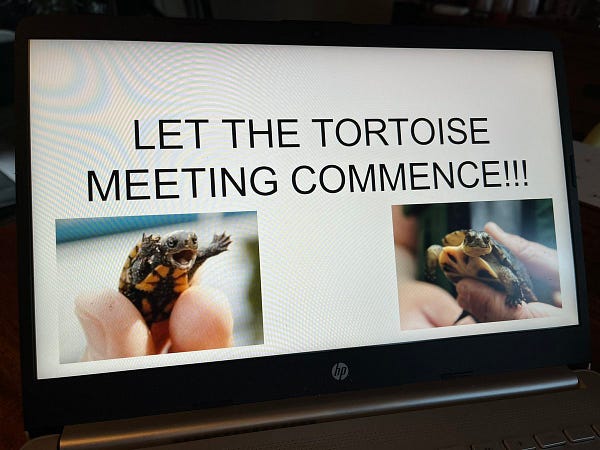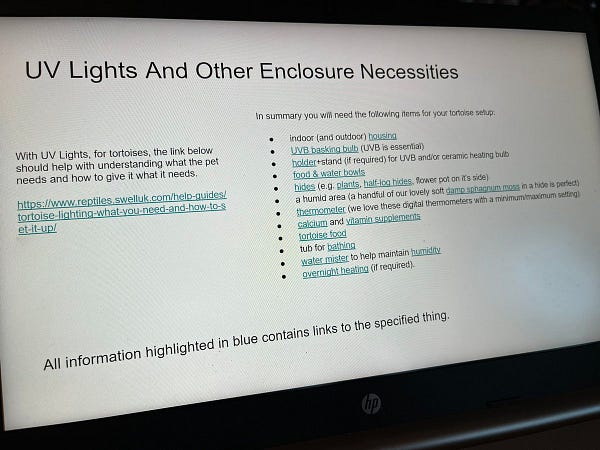The Daily Agenda: Nominees may ease budget freeze
The more bargaining chips the better ... A private education is expensive ... And we're suckers for anything with ska horns.
Jeffrey Glover, Gov. Katie Hobbs’ appointee to lead the state Department of Public Safety, sailed through the Senate committee tasked with vetting gubernatorial nominees yesterday in a friendly hearing that was a far cry from previous rancorous vetting sessions.
Glover’s confirmation hearing was a rare moment of agreeableness for the newly created committee, which, led by Freedom Caucus chair and Hobbs’ foe Jake Hoffman, generated early headlines for its rejection of Teresa Cullen as health director, and general hostility toward other nominees, some of whom Hoffman embarrassed, insulted and accused of lying to him from the stand. The committee has been a point of contention, to say the least, between the governor and Legislature, and tensions escalated after Hobbs fired her Department of Child Safety after two months on the job and Hoffman claimed victory.

And while it’s tempting to believe this moment could mark the beginning of a new era of statesmanship and thoughtful discussions on the merits of policies and personnel in a divided government, in reality, Glover and other nominees are likely to become pawns in the brewing battle over the state budget.
During the hearing, committee members questioned Glover about his definition of “peaceful” protest, whether he was planning major changes to leadership at the department, his view of Hobbs’ plan to dismantle former Gov. Doug Ducey’s border strike force, how he’ll recruit troopers, his view of police use of force against people of color and whether he thinks police departments are systemically racist.
Glover, who spent 22 years at the Tempe Police Department working his way up to chief, successfully navigated between Democrats’ and Republicans’ views on policing, offering insights into how he unexpectedly got into law enforcement while working with juvenile offenders and what being the first Black DPS director in state history would mean to him, the force and the Black community, while also sounding tough on crime, backing the blue and holding the line against progressive calls to defund the police. The vote to recommend him was unanimous.

His support from the Fraternal Order of Police, the Arizona State Troopers Association and other law enforcement groups made it nearly unimaginable that Republican lawmakers would vote against him.
But that doesn’t mean he’s going to get a vote from the full Senate anytime soon.
Hobbs’ key nominee will likely remain unconfirmed as a negotiating tactic as the Legislature approaches crunch time on the budget. Hobbs’ cabinet nominees are key to her ability to govern. Without them, or a Democratic majority in the Legislature, her role is largely relegated to signing executive orders and vetoing bills. But without the governor’s signature, Republican lawmakers can’t do much either.
There’s a deal to be worked out here. By allowing some1 of Hobbs’ nominees to advance, the Legislature is finally acting on something Hobbs wants. That gives lawmakers a better foothold heading into budget negotiations.
The threat of a potential budget stalemate resulting in a government shutdown has everyone at the Capitol worried about who the public will blame if politicians can’t reach a compromise. Simply obstructing Hobbs’ nominees wasn’t helping Republicans make the case that Hobbs would be to blame in the event of a shutdown. By moving Glover and others forward, Republican leaders might be signaling that they’re ready to negotiate, and that they’ve got some bargaining chips to trade.
Alt schools: Arizona’s budget analysts were way off when they offered a “highly speculative” estimate of what last year’s universal school voucher legislation would cost the state, the Republic’s Mary Jo Pitzl reports. While early estimates said the state would spend about $33 million on the program in the first year, newer numbers put that close to $275 million in the first year and climbing annually. Meanwhile, angry parents showed up at the State Board of Education meeting yesterday to complain about mid-year changes and proposed revisions to the ESA handbook, saying the proposed changes would disproportionately impact students with disabilities, the Yellow Sheet Report writes.
Bienvenido de nuevo: Gov. Katie Hobbs caught a Diamondbacks game with former Gov. Janet Napolitano yesterday and will head to the U.S.-Mexico border today with Homeland Security Secretary Alejandro Mayorkas in what will be her third trip to the border since becoming governor.
Sounds shady: Back when he was a state lawmaker, Democratic U.S. Rep. Ruben Gallego tried to start a bank for immigrants, but it failed in spectacular fashion after the guy he was working with, Joseph J. Carrillo, secured almost a half-million dollars from investors before the Arizona Corporation Commission forced the company to stop selling securities because it didn’t have a license to do so. Gallego was paid $27,000 for working as the communications director for the company, which regulators eventually shut down, and investors never saw a penny, the Republic’s Robert Anglen writes.
“The failed business venture came as Gallego tried to help change economic conditions in a needy community in a way that could have brought him wealth as well,” Anglen writes.
Just sit this one out: Republican consultants are still doing a lot of hand-wringing ahead of potential re-runs by failed pro-Trump candidates from the 2022 election cycle, The Hill writes, using Republican Kari Lake’s potential U.S. Senate run as the lead example.
You’ve heard of the muddy Mississippi: Giant glaciers of mud are speeding down the Colorado River into Lake Powell above the Glen Canyon Dam, posing a “existential threat” to the Southwest’s water supply and the dam itself, which wasn’t built to allow silt through, author Dale Maharidge writes in the New York Times. There are solutions, including drilling tunnels into the dam to let the mud blobs through, though Mahridge says a better solution is to decommission the dam altogether, a plan that the Bureau of Reclamation isn’t keen on. Meanwhile, a new federal plan to spend $250 million to pay water users to use less water and keep more water in Lake Mead could mean Tucson doesn’t have to impose mandatory cuts, like it would if the lake drops below 1,034 feet this year, the Arizona Daily Star’s Tony Davis writes. Details on the plan remain sketchy.
Water’s for fighting: After two hours of oral arguments Monday, the U.S. Supreme Court appears to be leaning toward the Navajo Nation’s side in a consolidated lawsuit seeking a plan to make the federal government do more to provide the tribe water, the Los Angeles Times’ David G. Savage writes. Nearly a third of Navajo households don’t have running water and the average resident on the reservation uses just 7 gallons of water per day, compared to the national average of 80-100 gallons, lawyers noted. Five justices seemed to side with the Navajo Nation, Savage writes, and the justices are expected to hand down their decision in June. Meanwhile, the City of Phoenix is hosting a series of public meetings as it prepares to raise water rates, ABC15 reports. Average customers could see a $2 increase in October, along with increases in years to come.
Just the most milquetoast ideas: Republican Sen. Steve Kaiser is trying to revive portions of his housing bill, Senate Bill 1117, but not the most controversial portions, including forcing cities to allow smaller lot sizes, Bob Christie writes for Capitol Media Services. Kaiser still has hope for provisions requiring cities to allow auxiliary housing units, construction of duplexes and tri-plexes, and manufactured housing, but he’s pretty mad at the League of Arizona Cities and Towns for killing his bill.
“They’ve been terrible to work with this whole time,” Kaiser told Christie. “You know, they lie and then they also do subversive (expletive) like this where they just try and work around you. So I have zero respect for the League and how they operate.”
Bankers are notoriously woke: County treasurers are criticizing lawmakers’ attempts to ban government from using banks that employ “environmental, social or government” standards policies. They already have a hard time finding a bank willing to take on their counties, and this will make it even more difficult, since big banks are more likely to work with counties and have “woke” policies, the Arizona Daily Sun’s Sierra Ferguson writes. And in Southern Arizona, former Republican Sen. Vince Leach is criticizing lawmakers’ attempts to attack woke corporations and ESG standards policies. In an opinion piece to the Arizona Daily Star, Leach writes that two bills would have made “ambiguous requirements that would punish businesses” for making business decisions, though amendments to both bills have eased his concerns.





Round two: The battle for Oak Flat rages on as a federal court is set to rehear a case today brought by Native American groups attempting to stop a planned copper mine at Oak Flat Campground, a site sacred to the Apache. Religious groups are closely following the case, which could have big First Amendment ramifications, the Republic’s Debra Utacia Kroll writes in a primer on the suit.
Seems fair: The former town manager of Sahuarita settled her lawsuit alleging she suffered retaliation after telling on the town attorney for smelling of booze at a town council meeting in 2021. Former Town Manager Teri Bankhead, who was fired after complaining, will receive $55,000 ($20,000 of which will go to her attorneys), while former town attorney Dan Hochuli received a $94,000 severance and six months of paid health and dental insurance, the Green Valley News’ Dan Shearer reports.
Nobody offers us cushy severance packages when we show up for work drunk. Help us build our golden parachutes so we can live large like a town attorney. Subscribe today!
More monorails, please: Lawmakers are pushing an “anti-transit agenda” that will harm the Valley’s ability to grow and plan for the future with legislation to limit an extension of the Valley’s transportation tax, Prop 400, by eliminating any funding for the light rail and existing bus service from the plan, J. Doug Pruitt, who chaired the original Prop 400 campaign in 2004, writes in the Republic.








